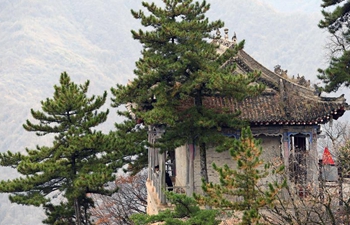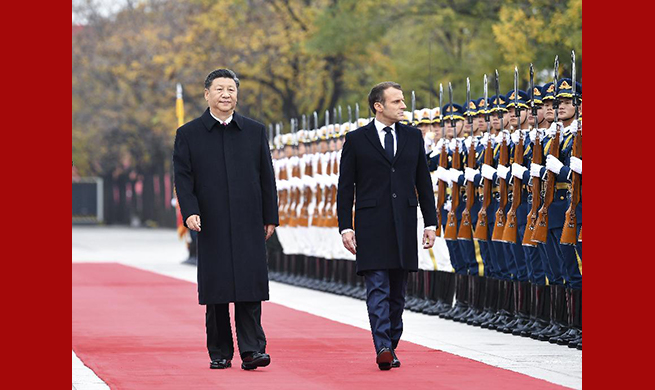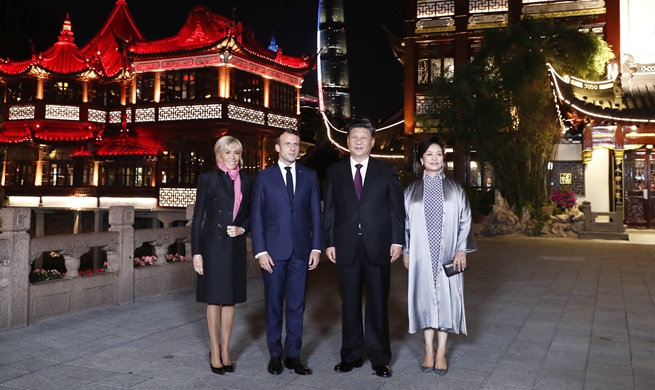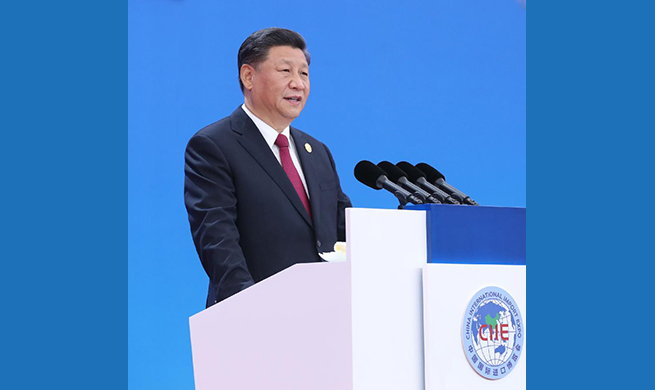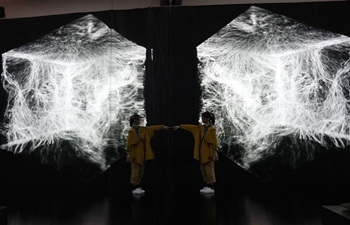WASHINGTON, Nov. 6 (Xinhua) -- U.S. House Intelligence Committee Chairman Adam Schiff on Wednesday said that his panel's first open hearings as part of an impeachment inquiry into President Donald Trump will begin next week.
Schiff tweeted they will hear from William Taylor, the top U.S. diplomat in Ukraine, and George Kent, an expert on Ukraine and Russia who serves as a deputy assistant secretary at the State Department, on Nov. 13.
Former U.S. Ambassador to Ukraine Marie Yovanovitch will testify on Nov. 15, according to Schiff.
Trump didn't take questions from reporters at the White House on Wednesday afternoon before leaving for a rally in Monroe, Louisiana to support Republican Eddie Rispone in his bid to unseat Democratic Governor John Bel Edwards in the state's gubernatorial runoff scheduled for Nov. 16.
Schiff's announcement came after several weeks of closed-door depositions by former and current Trump administration officials with House panels leading the impeachment inquiry amid escalating partisan battles.
"Those open hearings will be an opportunity for the American people to evaluate the witnesses for themselves, to make their own determinations about the credibility of the witnesses," Schiff told reporters at Capitol Hill on Wednesday.
The impeachment inquiry, initiated by House Speaker Nancy Pelosi in late September, is looking into White House's alleged efforts to withhold military aid to have Ukraine investigate former U.S. Vice President Joe Biden, a top-tier Democratic presidential contender for the upcoming 2020 elections, so as to benefit Trump's reelection campaign.
Trump has denied any wrongdoing. The White House has called the impeachment inquiry unfair and illegitimate.
House committees on Wednesday afternoon released a transcript from the testimony by Taylor, who testified behind closed doors on Oct. 22.
According to the transcript, Taylor told impeachment investigators that it was his "clear understanding" that the "security assistance money would not come until" Ukrainian President Volodymyr Zelensky committed to pursuing the investigation.
The senior diplomat also said Ukraine was not aware of a hold on military aid until the end of August, over one month after a phone call between Trump and Zelensky, which is at the center of the impeachment inquiry, prompting Republicans to argue that there was no "quid pro quo."
Trump and his allies, meanwhile, are calling for the identity of the anonymous whistleblower whose complaint this summer spurred the impeachment inquiry, to be made public, while Democrats have warned against the move.
"Nobody should be prosecuted based on an anonymous accusation. Impeachment is the political death penalty," South Carolina Republican Senator Lindsey Graham told reporters when asked about the risks of identifying the whistleblower. "Without the whistleblower complaint, none of this would be going on so I want to know who the person is."
Democratic Senator Richard Blumenthal of Connecticut, by contrast, said the attempt to name the whistleblower "is simply revenge, outright punitive retribution and trying to discourage other whistleblowers."
In a statement issued on Wednesday, attorneys representing the whistleblower said "identifying any suspected name for the whistleblower will place that individual and their family at risk of serious harm," stressing that they "will not confirm or deny any name that is published or promoted by supporters of the President."
"We will note, however, that publication or promotion of a name shows the desperation to deflect from the substance of the whistleblower complaint," according to the statement.
